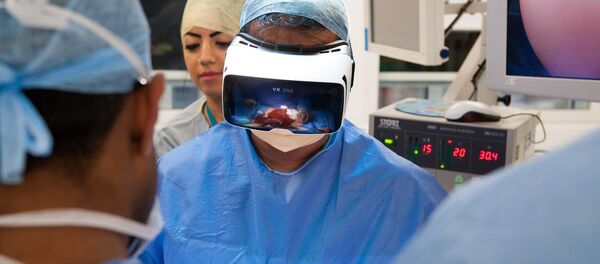Jaysukbhai Thaker, 38, was breathless and with a critical heart condition when he was airlifted from Porbandar to Chennai hospital. A week later while he was awaiting a donor heart his own one abruptly stopped. A cardiac arrest, when the heart stops, is a serious matter, as the blood supply is cut off to different parts of the body and the brain begins to starve from a lack of oxygen. Usually it takes only five minutes before brain damage sets in and in only 10 minutes the patient is likely already dead.
A team of doctors led by Dr. KR Balakrishnan, the Director of Cardiac Sciences at Fortis Malar Hospital, then started the life-saving therapy of extracorporeal cardiopulmonary resuscitation (ECPR), according to the statement. This difficult procedure involves supporting the patient with a portable heart and lung machine and bringing down the human body temperature to protect the brain during cardiac arrest. During ECPR the doctors connected Thaker to a portable extracorporeal membrane oxygenator to provide oxygen into his blood.
The patient later underwent a heart transplant. Now, with a new heart inside him, he is making a steady recovery and is leading a normal life.
"I feel I have got a new lease of life," Thaker said.
"Miracles like these are rare. Even in a hospital setting there is a 15% possibility of survival after a cardiac arrest. If he was not admitted, his chances of being alive today would be zero," said Dr. Suresh Rao, Chief of Cardiac Anesthesia and Critical Care at Fortis Malar Hospital.
"We have increasingly started using ECPR for 'in hospital' cardiac arrest with very good outcomes and are exploring the possibility of extending it to other locations, including outside the hospital, as is done in a few places around the world, like Japan, San Diego and Taiwan," Dr. Balakrishnan said.





